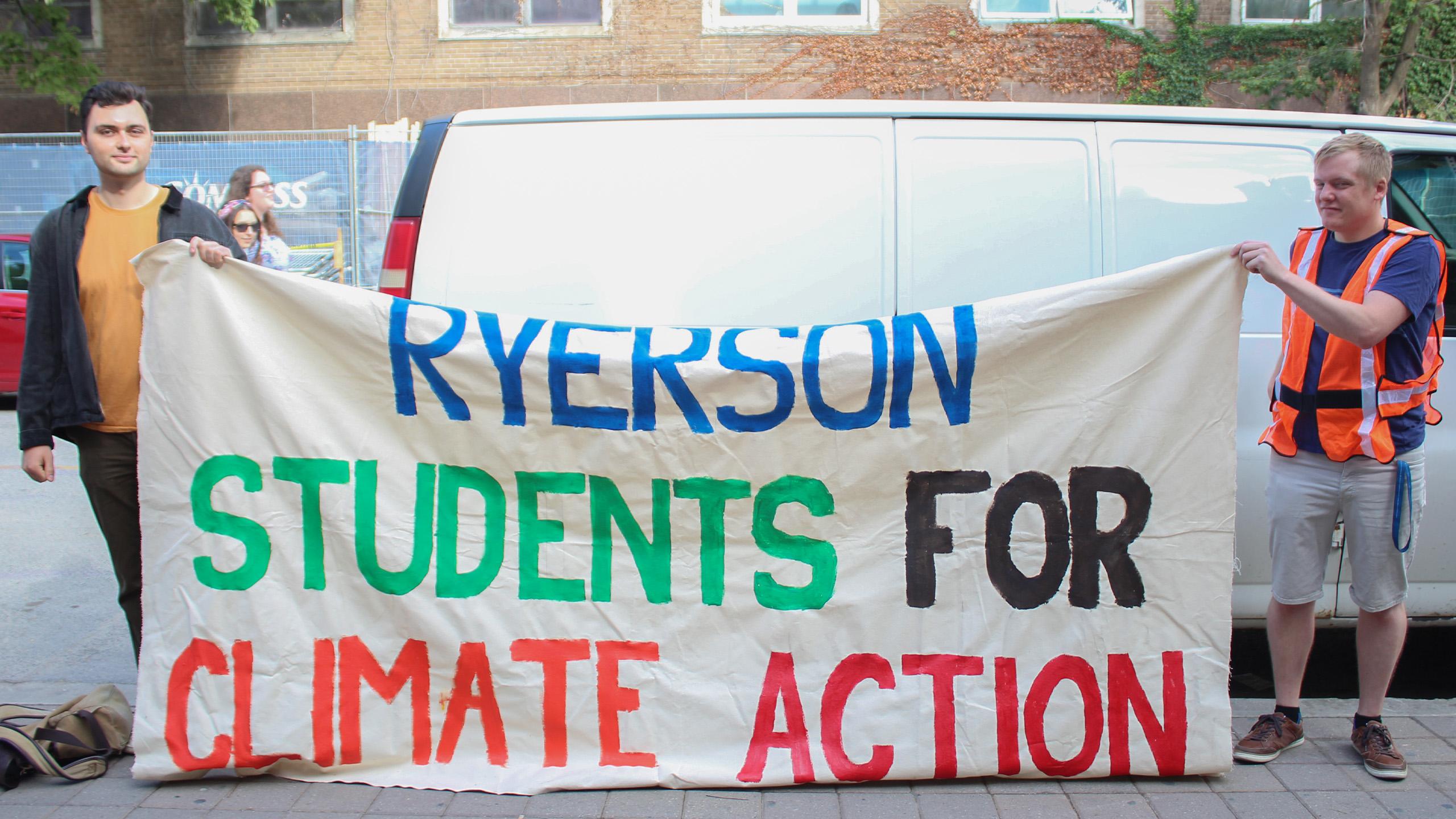By Ellen Dunn
Despite being stuck between midterms, jobs, and extracurricular activities university students still have the ability to affect change. During the climate crisis, it’s easy to feel discourage by the world’s state of emergency. But it’s important to remember, you have more of an impact than you think. Mitigating climate change while in school can include more than using a metal straw or reusable lunch containers.
Getting involved at school can include organizing protests and opening up conversations with peers, according to Savi Gellatly-Ladd, a youth climate activist who spoke about the importance of looking at the climate crisis in the federal election.
“It starts a ripple effect,” said Gellatly-Ladd.
Gellatly-Ladd has experience in getting involved. She was a speaker at the Global Strike for Climate Justice where Ryerson students joined others to protest for reactions from governments about the climate crisis.
Gellatly-Ladd was in conversation with youth climate activists Daniel Sarah Karasik, Jody Chan and Sudipta Saha at the Tranzac Club during an event hosted by Climate Justice Toronto, a newly established youth movement, whose goal is to tackle the climate crisis through grassroots organization.
All four youth climate activists agreed that it’s important for students to get involved in their communities. Grace King, a member of Climate Justice Toronto, said “youth are ready for more climate action”.
Melody Li, a University of Toronto student, attended the Climate Strike at Queen’s Park which she said provoked “motivation and anger,” within her. Li joined the University of Toronto Environmental Action organization as a first-year representative. Li was one of the students the youth climate activists spoke to about what can be done to make change.
Although all panelists agreed about how important it is to vote, they emphasized that the fight for climate justice goes further than the polls. Saha said the election is just a part of the process.
“The end goal is not the election,” Saha said. He believes the election is a good place to open up these conversations about the climate crisis, but regardless of the outcome, there is still a long road of climate activism and organization ahead. Karasik said “movements lead, politicians follow.”










Leave a Reply